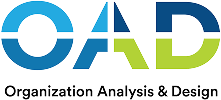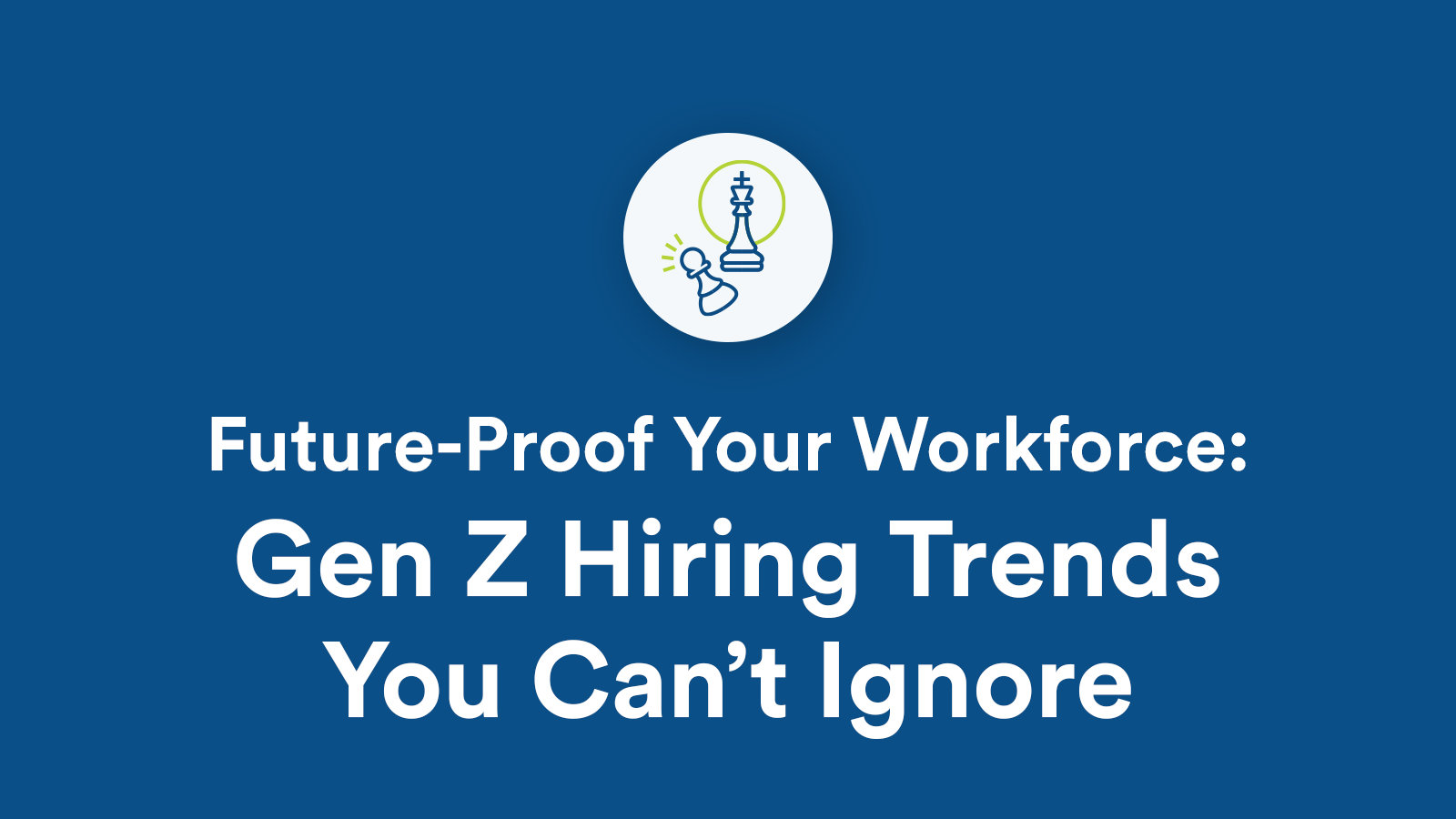Gen Z is no longer “next”—they’re now, and they’re transforming the workforce from the inside out. If your hiring strategy still caters to previous generations, you’re already falling behind. Understanding Gen Z hiring trends isn’t just useful—it’s critical to attracting top talent and staying competitive in today’s evolving job market.
Table of Contents
- Gen Z Hiring Trends: Why They Matter More Than Ever
- Meet Gen Z: Who They Are and Why They Matter
- Employer Branding in the Age of Gen Z
- Gen Z and Economic Uncertainty: What They’re Really Thinking
- Action Plan: How to Successfully Attract and Retain Gen Z Talent
- Final Thoughts: Adapting for the Next Generation of Workers
- Ready To Build a Gen Z–Ready Hiring Strategy?
Gen Z Hiring Trends: Why They Matter More Than Ever
By 2025, Gen Z will make up roughly 27% of the global workforce—and in many companies, they already dominate entry- and mid-level roles. Yet too many organizations are still hiring like it’s 2010, overlooking the seismic shifts in expectations, communication styles, and values that Gen Z brings to the table. As Generation Z enters the workforce in greater numbers, hiring trends are rapidly evolving to meet their unique expectations and preferences.
Generation Z isn’t just younger—they’re digital natives, shaped by economic uncertainty, social movements, and a hyperconnected world. As job seekers, they demand transparency, purpose, and meaningful career paths. For HR leaders, this means rethinking the recruitment process from the ground up—not just to attract Gen Z, but to engage and retain them long term.
Forward-thinking companies understand that successfully attracting Gen Z talent is a strategic advantage. Those who adapt early will gain not only a more engaged workforce but also fresh perspectives that drive innovation across departments, especially by recognizing Gen Z’s unique job search behaviors and workplace preferences.
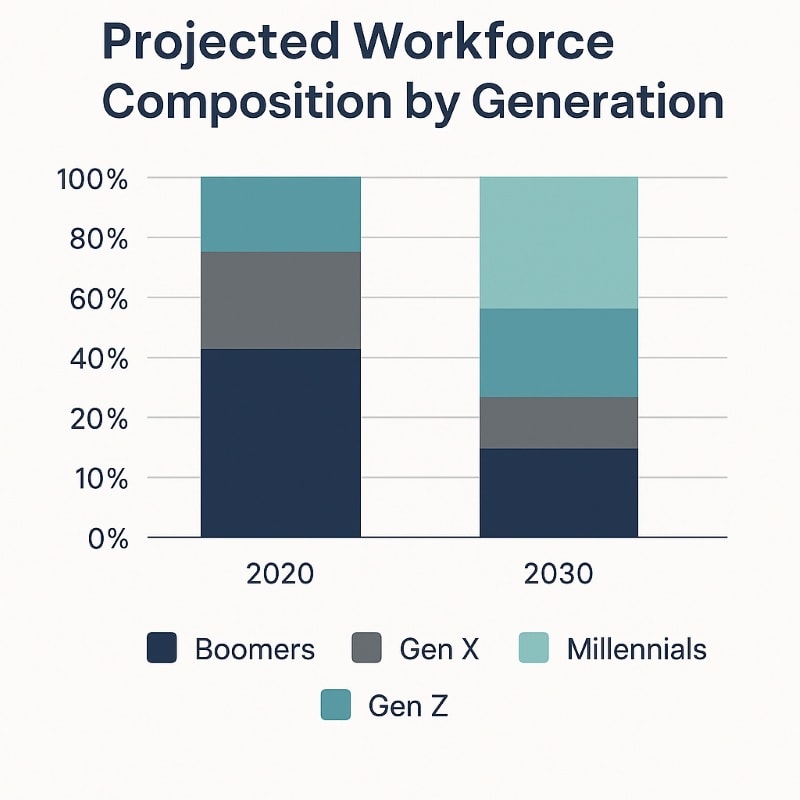
Meet Gen Z: Who They Are and Why They Matter
Gen Z isn’t just the next generation of job seekers—they’re already reshaping the workplace. Born between 1997 and 2012, they are the most diverse generation to enter the workforce, bringing a wide range of backgrounds, experiences, and expectations to the table.
As true digital natives, Gen Zers have grown up immersed in mobile technology, social platforms, and instant access to information. This has made them uniquely tech-savvy, adaptable, and deeply attuned to the speed and transparency of modern work environments.
What truly sets Gen Z talent apart, however, is their focus on work-life balance, meaningful work, and company culture that aligns with their values. They’re not simply chasing job titles—they’re looking for purpose, flexibility, and a genuine sense of belonging. With more than half of new job seekers soon belonging to Gen Z, employers can’t afford to ignore what this generation prioritizes.
Organizations that recognize and adapt to Gen Z’s mindset will unlock not just new hires—but new energy, innovation, and long-term resilience. Hiring Gen Z is more than filling roles—it’s investing in the future of your business.
The Rise of Purpose-Driven Job Seekers
For Gen Z, a paycheck isn’t enough—they want their work to mean something. Compared to previous generations, Gen Z places far greater emphasis on purpose, social impact, and alignment with company values, making these an important factor in their job search. If your job postings focus solely on responsibilities and compensation, you’re missing the mark.
Instead of chasing titles or stability, Gen Z job seekers are evaluating potential employers through the lens of mission and authenticity during their job search. They want to know: What does your company stand for? How does it make a positive impact in the world? And how can they contribute to that mission from day one?
That’s why employer branding needs to evolve into employer purpose. Companies like Patagonia and Salesforce have successfully built brands rooted in values—drawing in young talent not just with perks, but with a cause. Gen Zers expect this level of transparency and engagement, especially in a world where they can fact-check your values in seconds.
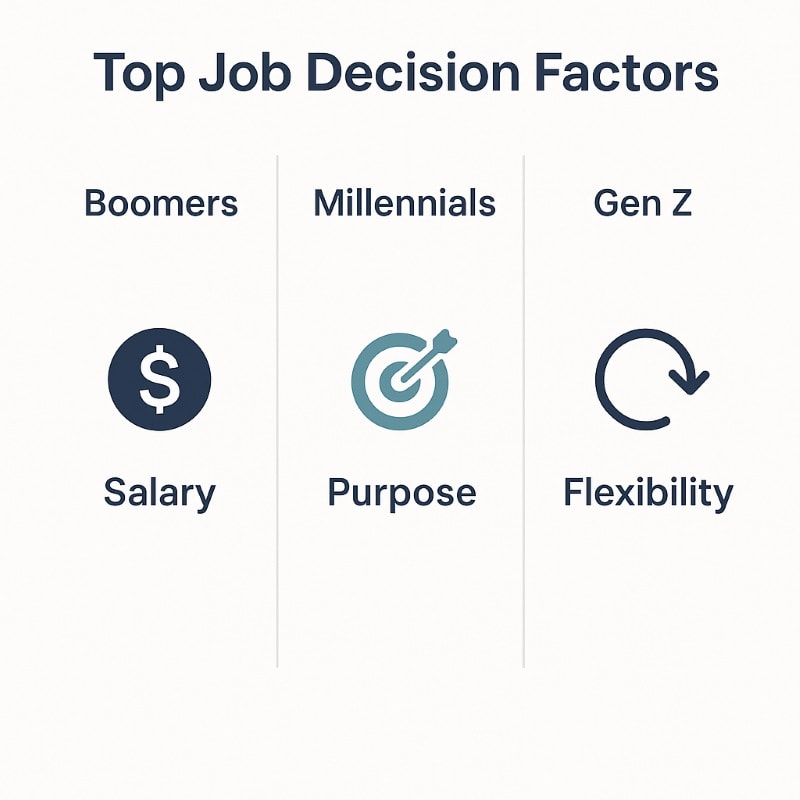
Digital Natives Demand a Seamless Hiring Process
Gen Z has never known a world without the internet—and they expect everything, including the hiring process, to reflect that. A clunky application process, such as slow-loading career sites, multi-page forms, or radio silence after applying, is an instant red flag for digital-first candidates who value speed, clarity, and ease—especially Gen Z.
Traditional job boards are no longer enough. Gen Z job seekers are discovering opportunities through social media, employee-generated content, and direct interaction with your employer brand. They want real-time insight into what it’s like to work for your company—and they’ll often decide whether to apply before ever reading the full job description. An engaging career page that showcases your company culture and values is essential for attracting Gen Z applicants.
To engage Gen Z talent, your application experience needs to feel as intuitive as shopping online. That means mobile-optimized career pages, quick application workflows, and timely follow-ups—ideally supported by tools like chatbots or virtual interview scheduling. A streamlined application process helps retain potential candidates, especially Gen Z, by reducing drop-off rates. The recruiting process should be adapted to include effective communication channels such as email, text messaging, and video calls to better connect with Gen Z. Additionally, modern tools like virtual interview scheduling software can improve the interview process, making it more efficient and appealing for Gen Z candidates. Even something as simple as clear communication about next steps can set your company apart.
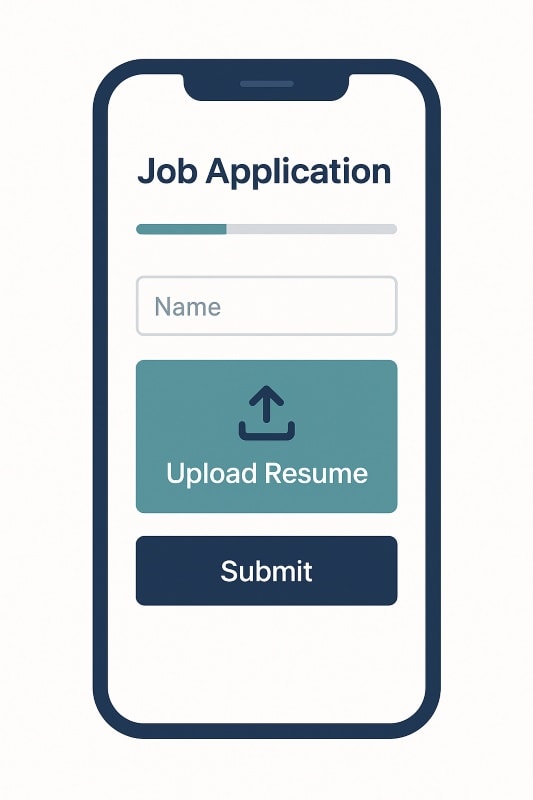
Employer Branding in the Age of Gen Z
For today’s workforce, especially Gen Z candidates, employer branding isn’t optional—it’s a strategic differentiator. This new generation is discerning, digitally fluent, and quick to evaluate potential employers across job boards, career sites, and social media. They’re not just reading job descriptions—they’re researching company values, leadership, and how culture is lived day to day.
To attract Gen Z talent, your brand must communicate more than benefits and titles. It should highlight authentic stories from current employees, clear career development paths, and a mission that aligns with what Gen Z believes in—whether it’s social responsibility, mental health advocacy, or innovation. These elements build trust and visibility in a crowded job market.
But branding isn’t just about recruitment—it’s about retention. A strong employer brand that reflects your true values helps retain Gen Z employees by reinforcing alignment between their expectations and their day-to-day experience. Companies that consistently communicate their culture, growth opportunities, and purpose are more likely to keep Gen Z engaged—and less likely to face early turnover.
Work-Life Balance and Mental Health Are Non-Negotiables
For Gen Z, work-life balance isn’t a luxury—it’s a baseline requirement. Raised in a culture that openly discusses burnout, stress, and mental health, this generation is far more likely to assess whether a company supports their wellbeing before even considering an offer.
Offering flexible hours or remote options as “extras” won’t cut it. To attract Gen Z candidates, flexibility should be built into your culture—from mental health days and asynchronous work to transparent expectations about after-hours communication. Remote work options are especially valued by Gen Z, as they provide the flexibility and independence this generation seeks. Finding the right balance between remote and in-person work is essential to meet Gen Z’s expectations for autonomy and connection. These signals of trust and autonomy are core to what young workers now consider employee satisfaction.
Moreover, traditional perks like ping pong tables and free snacks no longer impress. Gen Z wants to know: Will I be respected as a whole person here? Will I be supported when life gets hard? Companies that prioritize mental health—not just in benefits packages but in day-to-day practices—will win the loyalty of this new generation.
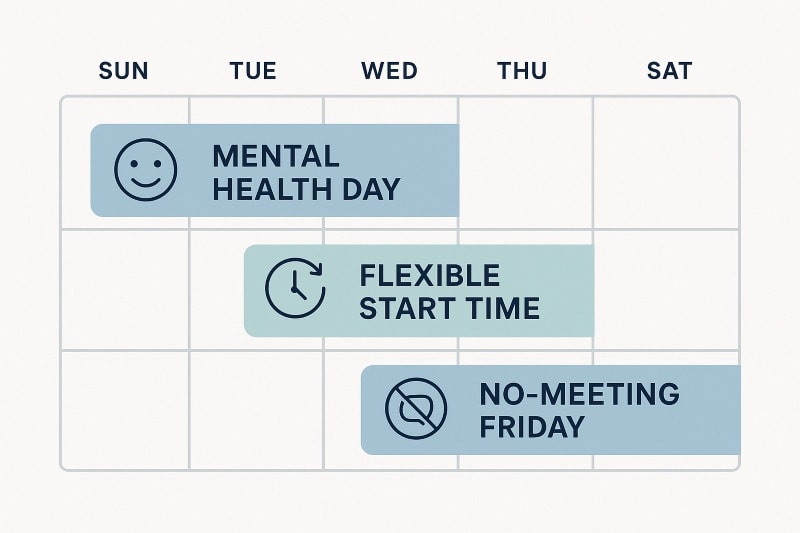
Company Culture: Beyond Perks and Ping-Pong Tables
For Gen Z employees, company culture goes far beyond free snacks or trendy office spaces. This generation is looking for workplaces that prioritize mental health, flexibility, and authentic opportunities for personal and professional growth. They expect to be supported as whole individuals—not just as workers.
To attract and retain top Gen Z talent, organizations must move beyond surface-level perks and build a culture that’s inclusive, responsive, and aligned with the needs of a diverse generation. That includes offering mental health days, flexible schedules, and clearly defined development paths. It also means creating space for open dialogue, shared decision-making, and a culture of respectful communication.
Companies that invest in a values-driven culture see higher levels of engagement, innovation, and long-term retention—especially among Gen Z employees. In a competitive job market, a strong and authentic company culture isn’t just a bonus—it’s a critical foundation for attracting and developing the next generation of leaders.
Career Growth Over Job Security
Forget the outdated assumption that Gen Z is looking for a “stable job with benefits.” What they’re really after is skill-building, mentorship, and visible growth paths. Unlike previous generations who prioritized climbing the corporate ladder, Gen Z values opportunities to develop new skills and gain meaningful experiences. In fact, LinkedIn’s research shows that Gen Z is more likely than any other generation to leave a job if they feel they’re no longer learning.
This generation grew up watching startups explode overnight and traditional careers dissolve in real time. They’ve internalized the idea that career development is self-driven—and they expect their employers to support that mindset. Whether it’s mentorship programs, cross-functional projects, or tuition reimbursement, Gen Z wants to know exactly how you’ll help them grow.
If your job descriptions still include vague phrases like “opportunities for advancement,” it’s time to get specific. Outline real skill trajectories, name potential mentors, and showcase past internal success stories. That clarity isn’t just attractive—it’s a sign your organization is intentional about employee development.
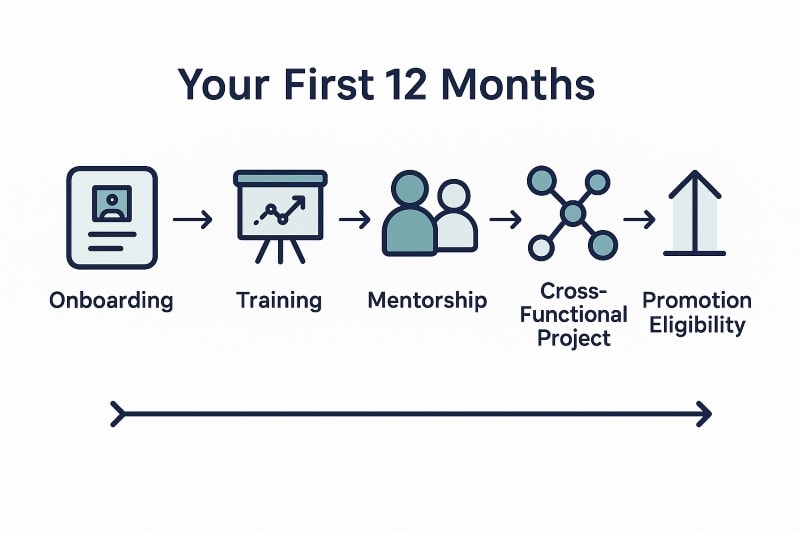
Diversity Isn’t a Checkbox—It’s a Dealbreaker
Gen Z is the most diverse generation in history—and they expect the workplace to reflect that. Gen Z workers, in particular, have high expectations for authentic diversity and inclusion, seeking employers who demonstrate real commitment to these values. For them, diversity isn’t a metric for corporate reports—it’s a baseline standard for choosing an employer. If your leadership team, hiring practices, or company culture lack representation, Gen Z job seekers will take notice—and opt out.
This generation wants to see people like them in roles of influence. They look for signs of inclusion at every level—from how you write your job descriptions to who gets celebrated publicly within your organization. Performative DEI statements without meaningful action are worse than silence.
Companies that succeed in attracting and retaining Gen Z talent make diversity a lived value. That means auditing hiring pipelines, promoting internally from underrepresented groups, and giving employees a voice in shaping culture. Inclusion is no longer an initiative—it’s a competitive advantage.

Real-Time Feedback and Communication Style Preferences
Gen Z was raised on instant feedback loops—from social media likes to real-time chats. So when they enter a workplace built around annual performance reviews, it feels like stepping into the dark ages. For this generation, communication must be frequent, clear, and two-way. Real-time feedback not only supports their growth but also significantly improves the experience for Gen Z job candidates, making your company more attractive to prospective talent.
They value managers who are accessible, candid, and responsive. Weekly check-ins, collaborative goal setting, and informal coaching moments aren’t “nice to have”—they’re expected. Tools like Slack, Notion, and video feedback platforms align with how Gen Z communicates naturally: fast, transparent, and asynchronous when needed.
More than anything, this generation wants to feel heard. Building structures that support ongoing dialogue—not just top-down announcements—signals that your company values their input and respects their communication style. That trust pays off in engagement, innovation, and retention.
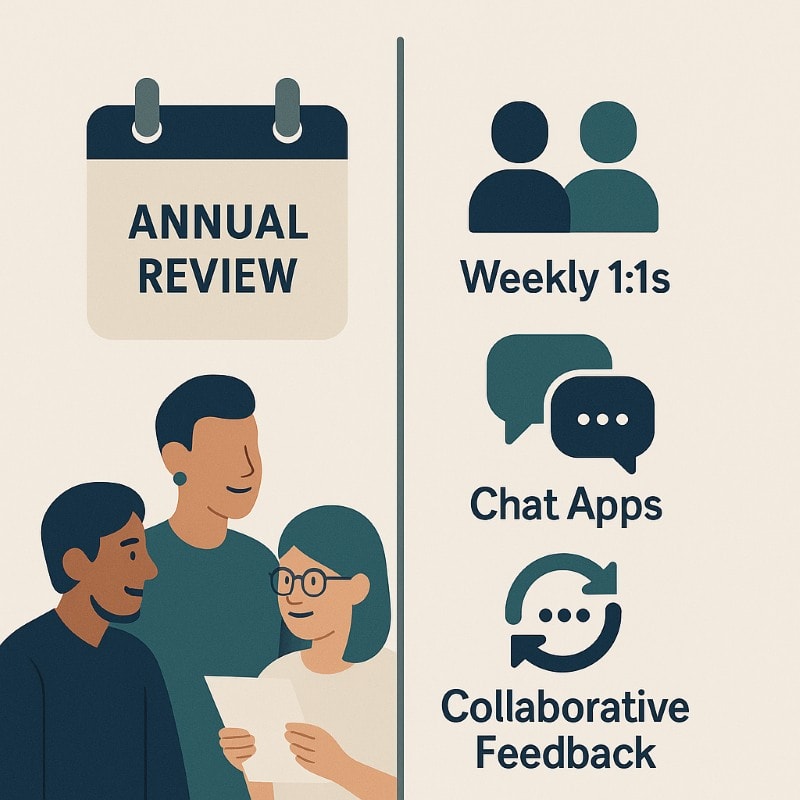
Gen Z and Economic Uncertainty: What They’re Really Thinking
Having come of age during a global pandemic, rising inflation, and widespread layoffs, Gen Z has developed a strategic mindset about work. They’re not entitled—they’re cautious. And they’re sizing up potential employers just as critically as you’re evaluating them. In particular, generation z employees carefully assess how employers respond to economic uncertainty before making career decisions.
This generation understands that no job is truly “secure,” so they look for signals of stability beyond salary. They ask: Does this company have a strong reputation? Is the leadership trustworthy? Is the employer brand transparent about challenges and wins? When these answers are unclear, Gen Z won’t take the risk.
That’s why companies need to communicate confidence without glossing over reality. Share your vision. Show how your current employees are supported during economic shifts. A culture of clear, honest communication builds the kind of psychological safety that Gen Z values far more than outdated notions of job security.
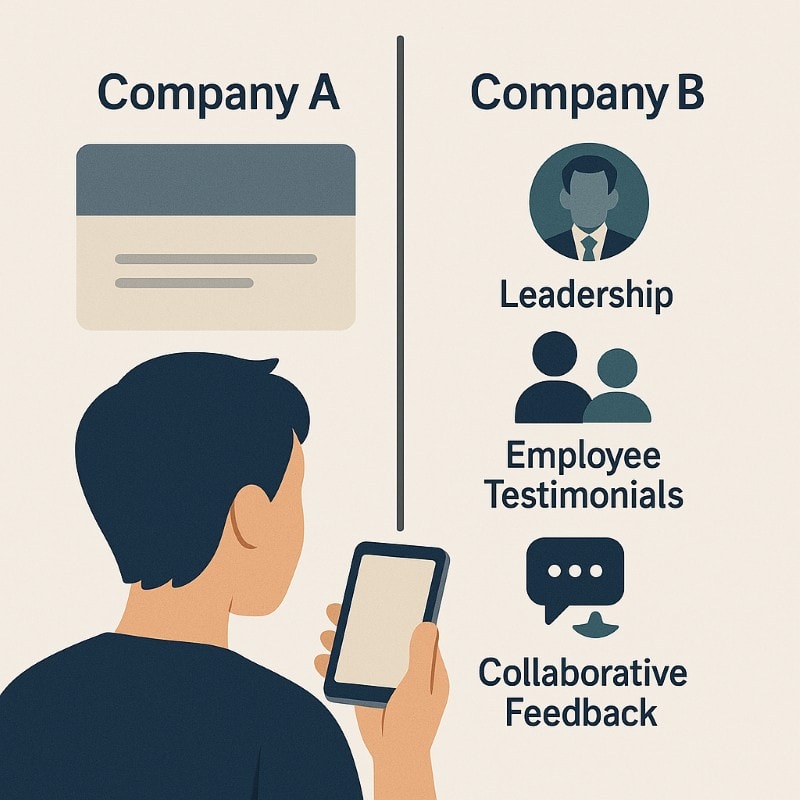
Action Plan: How to Successfully Attract and Retain Gen Z Talent
Hiring Gen Z isn’t about overhauling your culture overnight—it’s about making strategic shifts that reflect what this generation truly values. Effective talent acquisition strategies tailored to Gen Z are essential for attracting and retaining this new wave of employees. Here’s what to focus on if you want to stay competitive in today’s job market:
- Lead with purpose. Make sure your job descriptions, social channels, and employer brand highlight meaningful work and company values—not just responsibilities. To attract Generation Z, emphasize how your mission aligns with their desire for impact and authenticity.
- Optimize the application experience. Gen Z expects digital-first, mobile-friendly, and fast. Simplify the process and communicate clearly at every step. When recruiting Generation Z, focus on user-friendly application processes, transparent communication, and feedback collection. Recruiting generation strategies should leverage technology to engage this demographic effectively.
- Build flexibility into the role. Offer mental health days, hybrid models, and autonomy. These aren’t perks—they’re baseline expectations.
- Show them how they’ll grow. Include mentorship programs, skill-building opportunities, and clear career paths in both recruiting and onboarding. This approach is key to attracting top talent from Generation Z who value continuous development.
- Make diversity visible. Showcase your commitment to inclusion in real ways—representation, culture, internal mobility, and community impact.
- Give regular feedback. Adopt communication rhythms that reflect Gen Z’s expectations: weekly 1:1s, open channels, and collaborative goal setting.
- Be transparent about your stability. Share your vision and leadership philosophy openly. Gen Z will respect clarity—even when things are uncertain.
- Strengthen your employer brand. Invest in brand building specifically for Gen Z by reshaping workplace practices and employer branding to stand out in a competitive job market.
Pro Tip: Tools like OAD’s behavioral assessments help hiring managers match candidates not just to roles—but to values, communication styles, and long-term team cohesion.
Final Thoughts: Adapting for the Next Generation of Workers
Gen Z isn’t just another wave of entry-level hires—they’re a transformational force reshaping how, why, and where we work. Companies that embrace these changes now won’t just attract top young talent—they’ll build more resilient, engaged, and future-ready teams.
The challenge isn’t whether you can adapt. It’s whether you’ll do it in time.
Ready To Build a Gen Z–Ready Hiring Strategy?
Hiring the right Gen Z candidates starts with understanding how they think—and how they fit.
With OAD’s science-backed behavioral assessments, you can:
- Identify which candidates align with your company culture
- Improve retention by matching people to roles that fit their personality
- Build a diverse, purpose-driven team from day one
